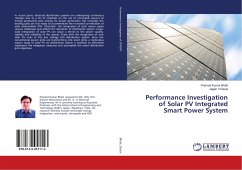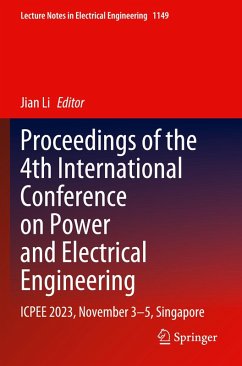
Performance Investigation of Solar PV Integrated Smart Power System
Versandkostenfrei!
Versandfertig in 6-10 Tagen
55,99 €
inkl. MwSt.

PAYBACK Punkte
28 °P sammeln!
In recent years, electrical distribution systems are undergoing continuous changes due to a lot of emphasis on the use of renewable sources of energy particularly solar energy for power generation. But ironically, the existing grids are not ready to accommodate the increased contribution of solar photovoltaic (PV). Therefore, the integration of such source poses various challenges and affects the operation of distribution system. Large-scale integration of solar PV can cause a threat to the power quality, stability and reliability of the system. These limit the integration of new solar PV unit...
In recent years, electrical distribution systems are undergoing continuous changes due to a lot of emphasis on the use of renewable sources of energy particularly solar energy for power generation. But ironically, the existing grids are not ready to accommodate the increased contribution of solar photovoltaic (PV). Therefore, the integration of such source poses various challenges and affects the operation of distribution system. Large-scale integration of solar PV can cause a threat to the power quality, stability and reliability of the system. These limit the integration of new solar PV units at the low voltage (LV) distribution system. Since the conventional power grids are transforming into smart grids, a meticulous impact study of solar PV on distribution system is essential to effectively implement the mitigation measures and accomplish the smart distribution grid objectives.












